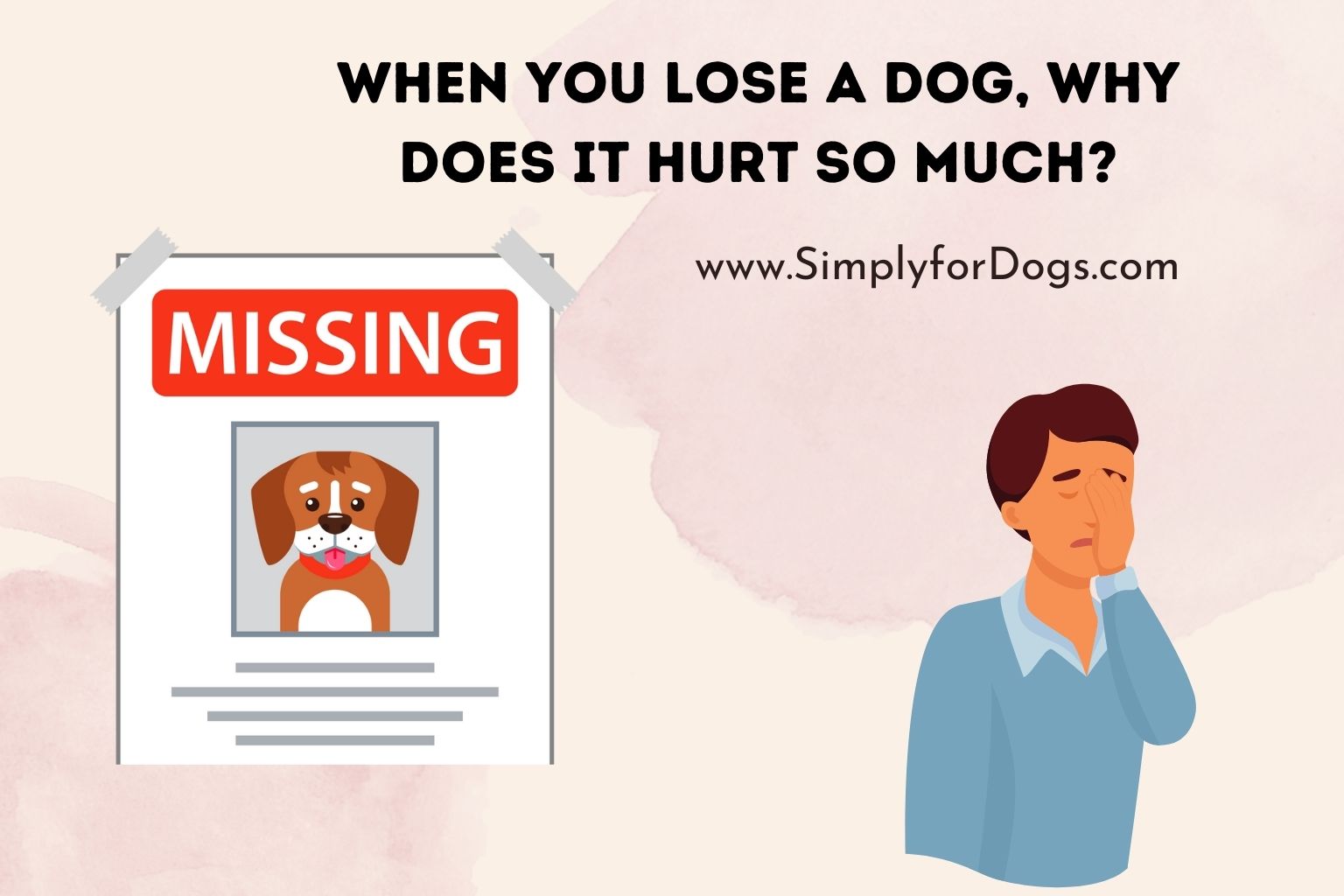Okay, so Ash is back on the “dog death” thing again. I’ve been accused many times of dwelling on losing dogs, but as I’m always pointing out, if I talk about death when it comes to dogs, it’s simply because it happens so often. Very few of us are ever going to outlive our dogs. And when we lose them, we need to find ways to deal with that loss.
I have loved and lost so many dogs over the course of my life that you might think I wouldn’t even be able to remember all of them, but I do. I remember each and every one, and the qualities that made them special. And every time I’ve lost a dog – every single time – it’s been a fresh, raw, open wound.
So, when you lose a dog, why does it hurt so much? It’s just an animal, right? It’s not a husband or a wife, a child, or a brother or sister.
No, it’s not. And the path of grief that you walk down when you lose a family member may very well be different from that you walk when the loss is your beloved dog. Or it might not.
Think of it this way – a dog will usually live somewhere between 9 and 13 years, and that’s more than enough time for him to carve out a place in your heart. More than enough time for him to become everything in the world to you. And yet people will tell you that you shouldn’t grieve for a dog in the same way that you would for a human.
I call bullshit.
It’s the Same but Different
Losing a human family member is hard enough. But most of the time, you can console yourself with thoughts like, “He was really ill, and it’s for the best,” or, “She had a wonderful long life and there’s no shame in that,” and,“Thank God there’s no more pain.”
When death comes to a dog, though, your reaction is likely to be something along the lines of, “It’s not fair – why should a rotten human live for 80 or more years but a good dog dies in a fraction of that time.”
You’re right, it’s not fair. And when it happens, you also think, “I loved him so much and I don’t know how I can go on without him.” You’re scared, because he was always there, and now he’s not. You don’t know how to get through it. It’s a very different journey from that we experience when we lose a human.
Simply stated, the loss of a dog can be very traumatic. As I’ve just suggested, it’s not right, and it’s not fair, that these creatures we love so much live for such a short time. Much of the time, our dogs have characteristics that we wish could be present in our friends, and even in ourselves. They’re loyal, respectful, loving and forgiving. Do I really need to say more?
A dog is, simply stated, a gift. One that can make a huge difference in your life. From your dog, you learn kindness, patience, responsibility, and total love. And that’s why, when you lose your dog, it hurts every bit as much as the loss of a dear friend or close relative.
So, you work through certain stages of grief.
I’ll tell you right now, though, that I’ve never gone through all the stages. Elisabeth Kübler-Ross has suggested that the five stages of grief are denial, anger, bargaining, depression and acceptance.
Usually, I started off with grief. I didn’t bother with denial, because I could see that my beloved dog was dead. As to anger, I had nowhere to put it. Maybe I could have been angry at the disease that killed my dog, but that didn’t seem to make a whole lot of sense.
Bargaining? With whom? And for what? Would I bargain with God, asking him to give me my dog back? Yeah, like that would work.
Depression? Oh sure, I hit that stage and stayed there for a long time. Then finally, I just had to move on to acceptance.
I suppose that all stages are normal in one way or another, and that many people will move through all five stages. I didn’t, but that doesn’t mean that other people don’t.
I guess the point I’m trying to get to is that everyone grieves differently. There’s no timeline for grief, and there are no boundaries. It takes as long as it takes.
Related Content:
25 Quotes About Grief and Pet Death
How to Find a Lost Puppy or Dog (Video)
My Dog’s Dog Just Died – How Can I Help?
So, When You Lose a Dog, Why Does It Hurt So Much?
It hurts because you’ve lost someone you loved more than life itself. Someone you can never get back, no matter how angry you are, and how much you bargain. When you lose a dog, it hurts so much because its irreversible.
And it hurts because we’re meant to hurt. We’re meant to hurt for the ones we love so much. The ones who can never be replaced. The ones that we will miss for the rest of our lives.
When we lose a dog, it hurts so much because we’re human. We love hard and strong and forever.
It hurts because our dogs are our whole world, and we can’t imagine our lives without them. We hurt because we’re built that way. And it’s what makes us good, and fine, and worthy of dogs. It’s not a bad thing, but it is, indisputably, a very painful thing.

